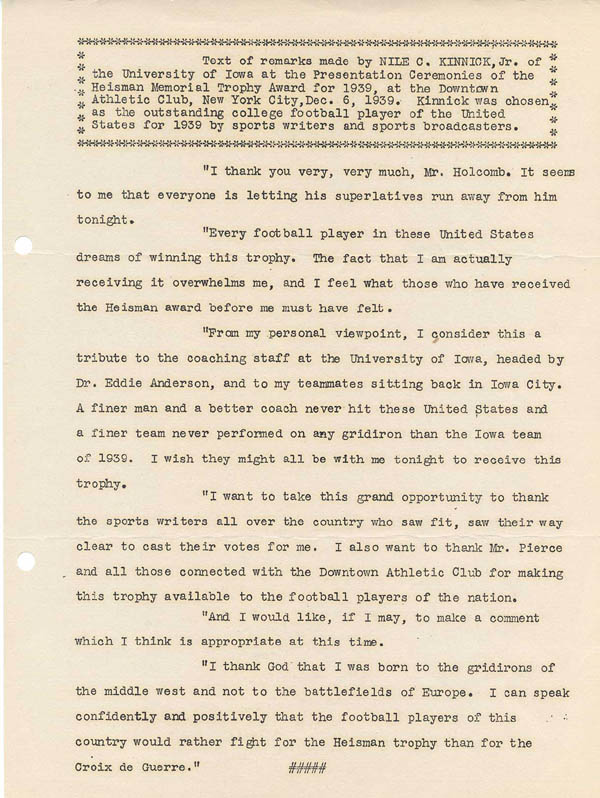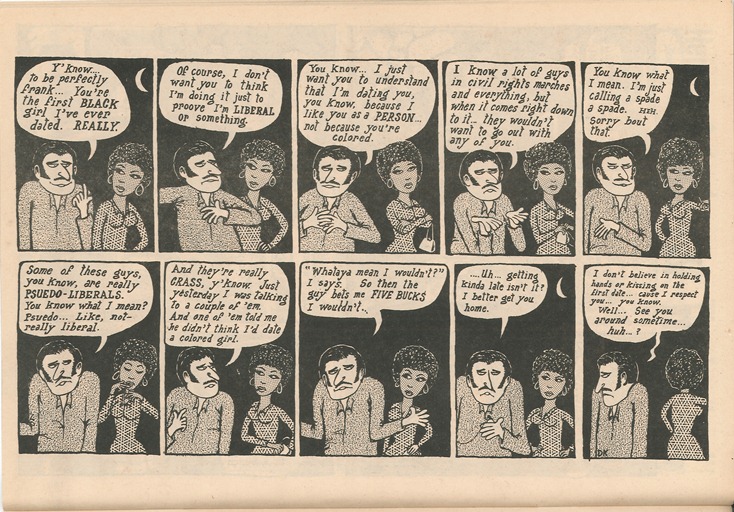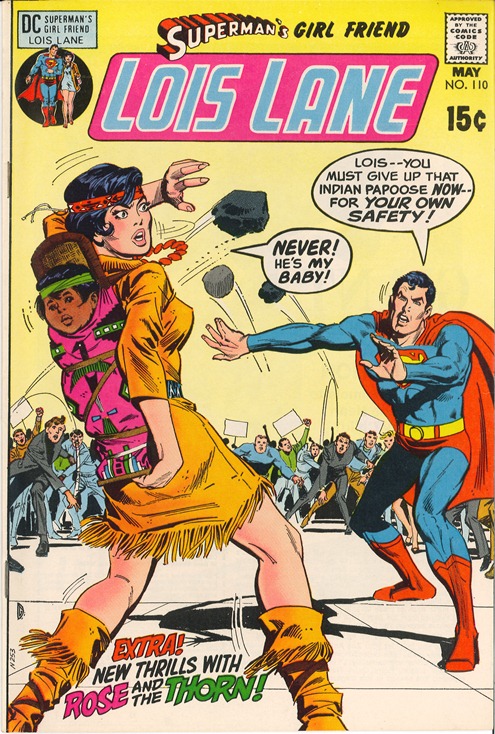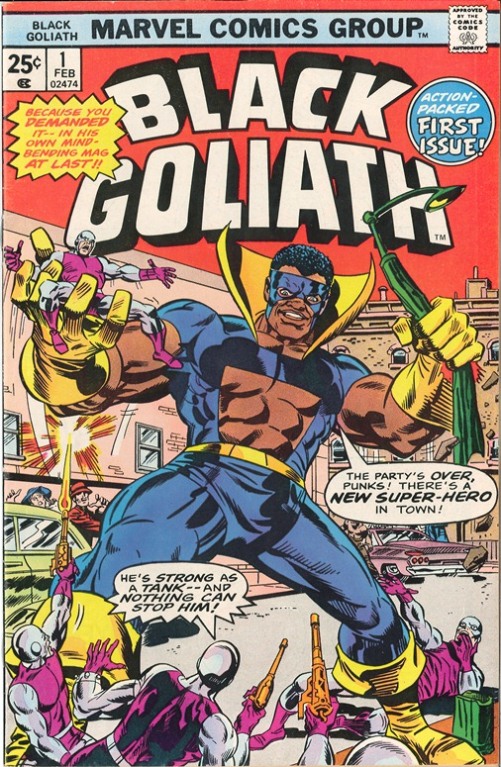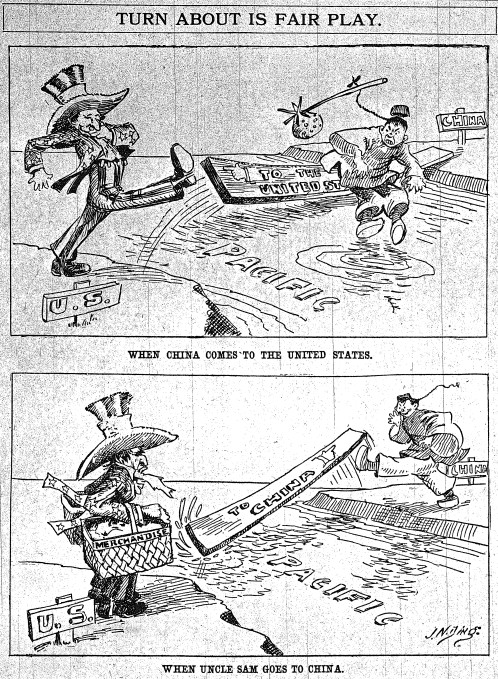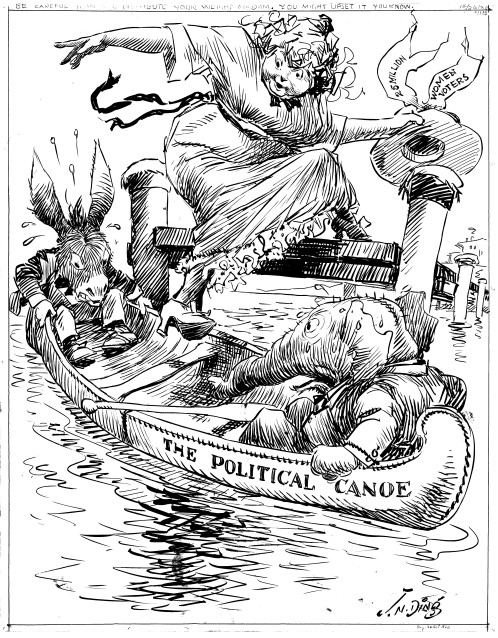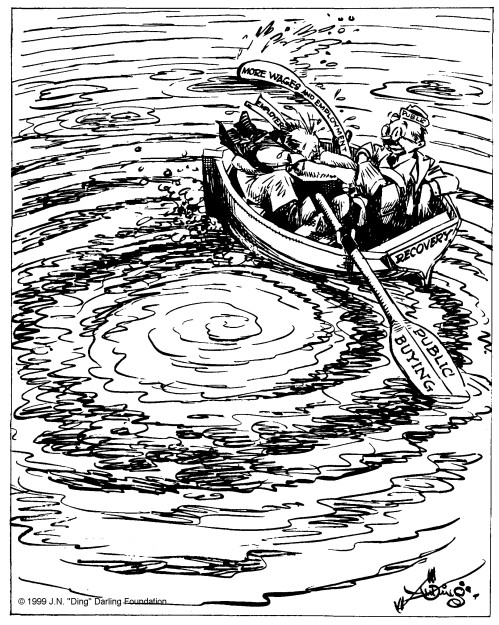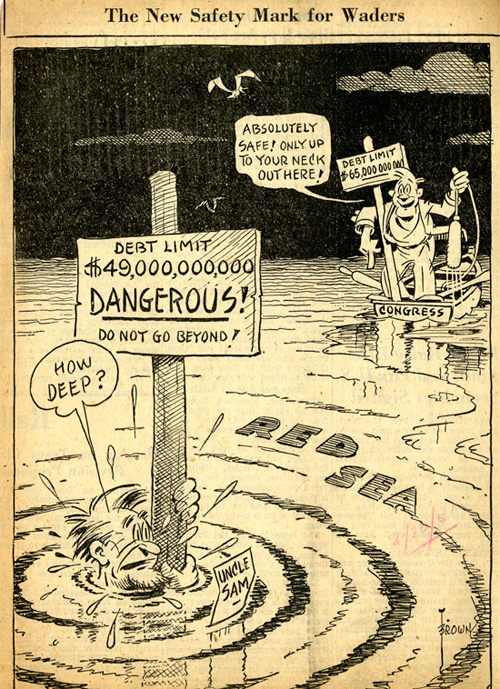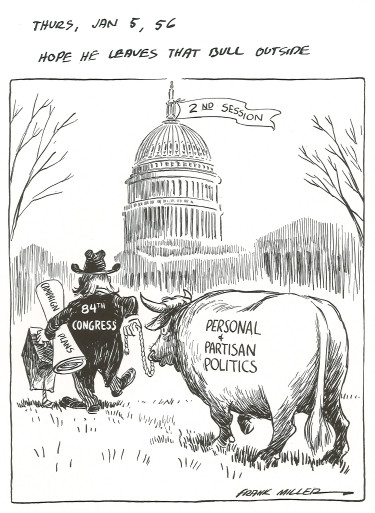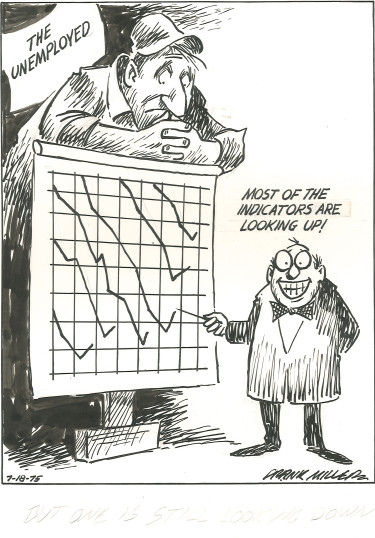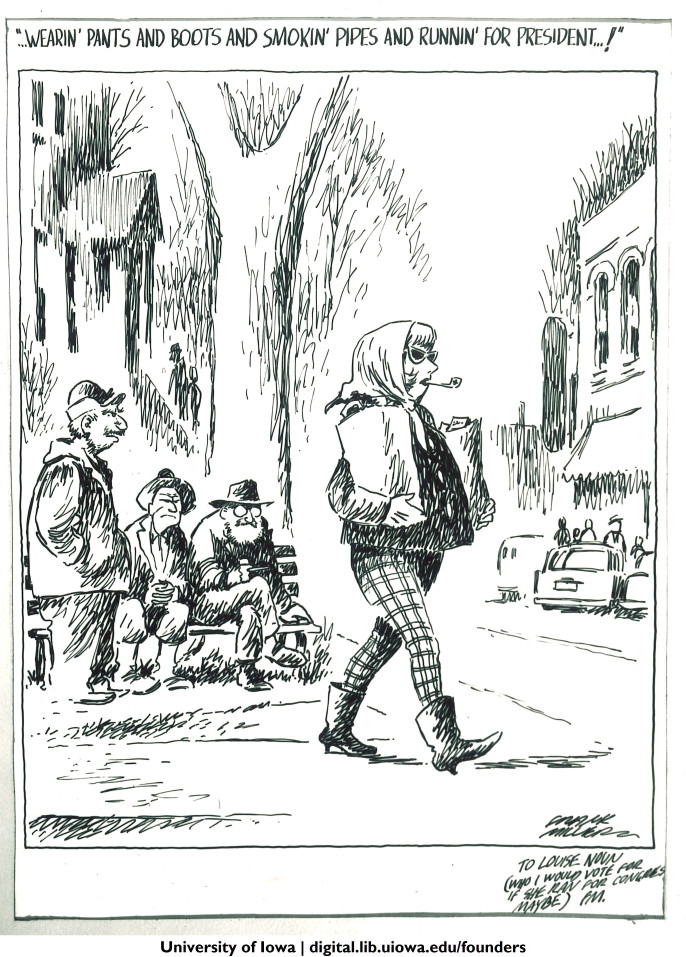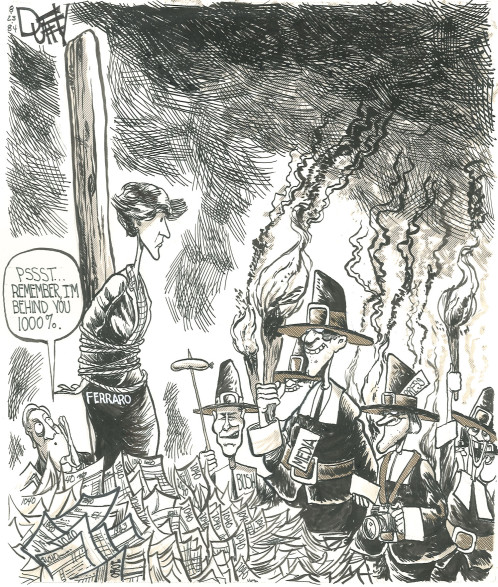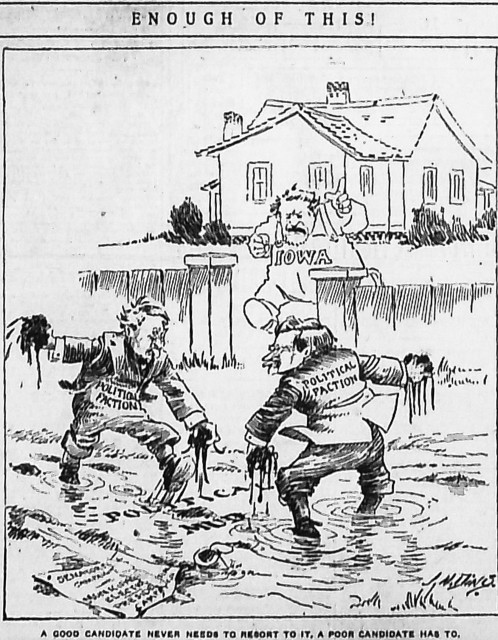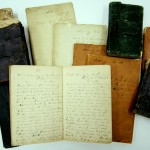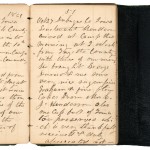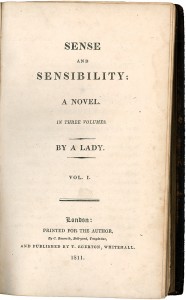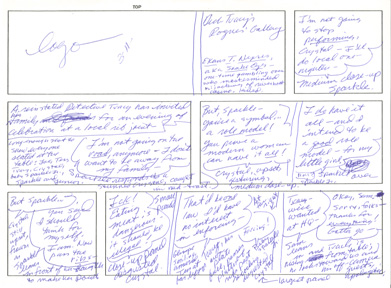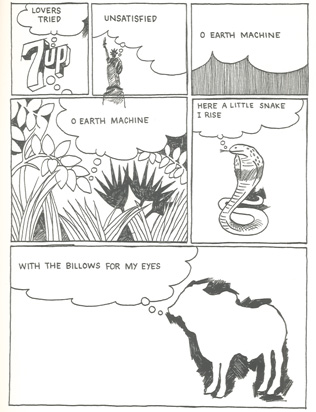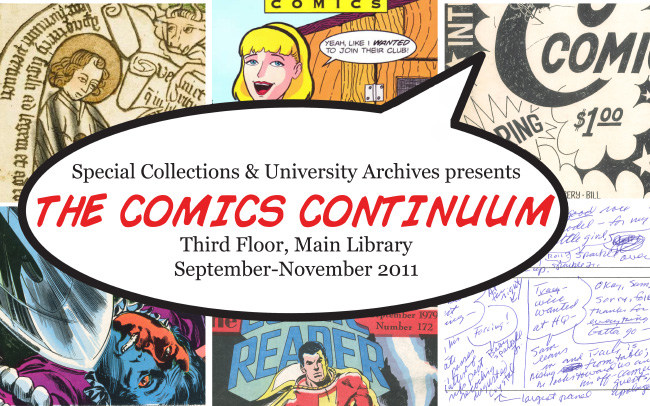We are commemorating the 70th anniversary of the U.S. entry into World War Two by highlighting some items in our collections relating to this event.
How did Iowans see the coming of World War Two to the United States? The works of Jay Norwood “Ding” Darling, editorial cartoonist of the Des Moines Register regularly commented on the conflict brewing in Europe and the Pacific.
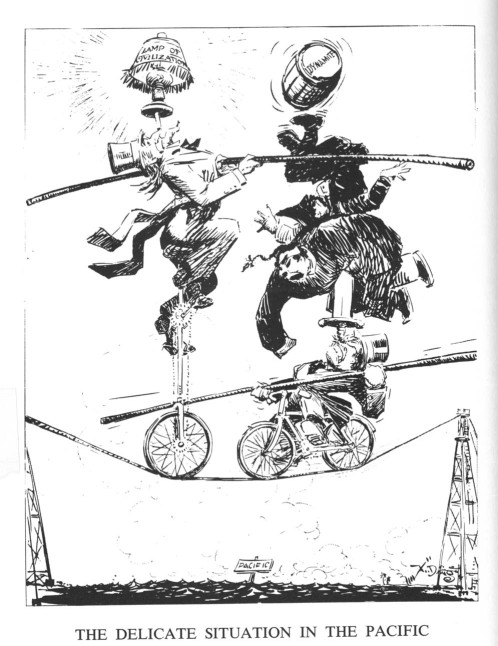
Darling’s sketch published just two days before the Japanese attack on Pearl Harbor depicts Uncle Sam on the one side, and Japanese and Chinese characters on the other, maintaining a precarious balance on a tightrope over the abyss of war. Uncle Sam, standing in for the United States, is valiantly trying to uphold the “Lamp of Civilization,” while the Japanese is holding a sword against the chest of the Chinese (Japan had invaded the Chinese region of Manchuria in 1931 and had been maneuvering against China in preceding years), and another Asian character is juggling a keg of dynamite.
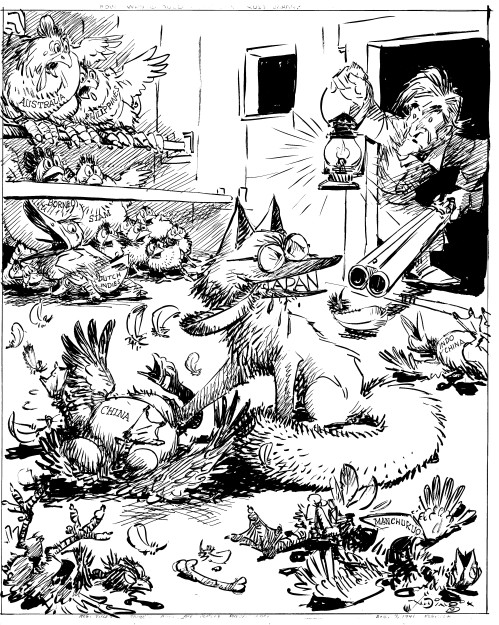
Appearing on the very day of the attack on Pearl Harbor, Darling’s cartoon may not be directly responding to the attack. However, using an Iowa farm metaphor, Darling depicts Japan as a fox wreaking havor in the chicken coop of the Pacific region. This use of the scenarios of farm life both dramatized the situation for newspaper readers and explained to them the complexity of the international conflict. Darlin’s cartoon was syndicated, so it appeared in several big cities of the United States – thus shaping the national perception of the conflict and the possible U.S. responses to it.
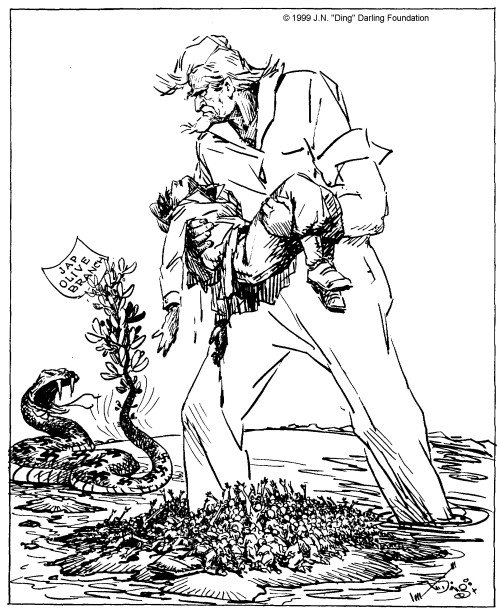
When he felt that the occasion demanded it, Darling switched into a more elevated drawing style to create cartoons that spoke to higher values and emotions. His picture published two days after the attack on Pearl Harbor depicts the German and Japanese threat as one and the same, personified by a snake rattling an olive branch even as it is preparing to strike at Uncle Sam, who holds a wounded figure in civilian clothes, while multitudes at his feet are pleading with him to help repel the monster. The features of Uncle Sam are suggesting grief but also a grim determination to resolve the conflict. This was America preparing for war.
The University of Iowa has the most complete holdings of Jay Norwood Darling’s cartoons and his personal papers. To see a description of the collection, please go to
http://www.lib.uiowa.edu/spec-coll/MSC/ToMsc200/MsC170/MsC170_DarlingDing.html
To see more of Darling’s cartoons about World War Two, please visit our online cartoon database here:
